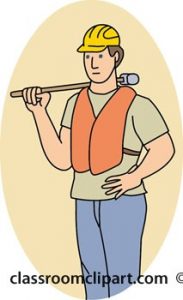ESOL 095 Level 3 Grammar & Writing
Unit 3 Topic – Careers



Passive Voice and Noun Clauses
Reading – Math Isn’t Just for Boys
Pre-reading Questions
- What makes someone good at math? Is genetics or the expectations others have?
- Are girls less likely to be good at math than boys are? Why or why not?
- Should more girls continue their interest and ability in math into high school and college?
Math Isn’t Just for Boys by Rachel Crowell
Comprehension/Discussion Questions
- What are some of the reasons girls don’t pursue math-related careers?
- What could be ways to change the pattern?
- What does Demi Guo mean by “You’ll never appreciate the beauty of math if you never try”?
Find and list 5 passive voice verbs
Vocabulary
- Occurrence – something that happens
- Competition – the act of trying win something
- Contestant – a person who takes part in a contest
- Represent – to act or speak officially for someone
- Stereotype – an often unfair and untrue belief that many people have about all people with a particular characteristic, e.g., ethnic or racial stereotypes
- Outdated – no longer useful; not modern
- Potential – the possibility of someone or something becoming better
- Dissuade – convince someone not to do something
- Superstar – an extremely successful person or performer
- Gap – a space between two people or things
- Exception – someone or something different from all the others
- Self-esteem – a feeling of respect for yourself
- Startup – a new business
- Gender – the state of being male or female
- Participation – to be involved with others doing something
Vocabulary Exercise
- I want to find a ______________ that I can invest money in.
- There’s not that much of a _____________ between their ages.
- We tried to _______________ him, but his mind was made up and we couldn’t change it.
- You shouldn’t say those things about him. Those opinions are just __________________.
- My boss said I had the _______________ of being a manager someday.
- We would like to have your __________________ in our project.
- Please make an __________________ for me. I can’t be at your party this weekend.
- She’s really skilled at that sport. I believe she’s going to be a __________________ someday.
- His views are _________________. He’s needs a more modern approach.
- Have ____________ issues been resolved. Do women have the same opportunities as men?
- This __________________ a breakthrough in the field of medical science.
- There has been only one ____________________ of vandalism this month.
- Do you think the _____________________ was fair? Should that team have won?
- Has his ___________________ been damaged by the negative comments of his boss.
- She was a _________________ on a game just last week. I think she won a new car.
Grammar: Passive Voice
An Active Sentence has a subject doing an action, an action verb describing the action, and an object receiving the action.
The man gave blood at the Red Cross.
A Passive Sentence has a recipient subject, a passive verb, and perhaps an agent in a by phrase.
S V PP Agent (in by phrase)
Blood was given at the Red Cross by the man.
In the Active Sentence there is transfer of action: subject à verb à object
In the Passive Sentence there is no transfer; in fact, the passive subject still receives the action of the verb.
Forming the Passive
A passive sentence always has some form of the BE verb and the past participle form of the main verb.
BE + Past Part.
Candice was awarded a scholarship. A scholarship was awarded to Candace.
IO DO
The committee awarded Candice a scholarship.
If the active sentence has two objects, direct and indirect, either one can be the passive subject.
Transitive and Intransitive Verbs
Transitive verbs take an object; intransitive verbs do not take an object.
Intransitive verbs cannot occur in the passive.
Some verbs are always transitive – call, give, find, lose, make, put
Some verbs are always intransitive – arrive, fall, go, happen, occur
Linking verbs are also intransitive – appear, be, become, seem, look, taste
Other verbs can be either transitive or intransitive – change, close, open, write
Grammar Exercises
I. Choose the active or the passive form of the verb.
- More information (needs, is needed) before we can reach a decision.
- Their house (robbed, was robbed) last night while they we out to dinner.
- Our company profits (grew, were grown) by 10% last year.
- How many jobs (lost, were lost) in the last recession?
- He (spoke, was spoken) to a recruiter last week about a job in Seattle.
- The contract (needs, is needed) to be signed before this Friday.
- I understand that a contract settlement (has reached, has been reached) today.
- Will her job (phase out, be phased out) in the new restructuring plan?
- The lunch menu (has changed, has been changed) by the cafeteria staff.
- Her husband (has given, has been given) new responsibilities at work.
II. Fill in the blank with either the active or passive form of the verb in parenthesis.
- She ___________________ (take) pictures of her children all afternoon.
- Bids on the new project _____________________ (accept) this morning.
- Several of the documents we need for the merger ____________________ (lose).
- Your partners want to sell the company because it ________________ (lose) money.
- The doctor _______________ (tell) his patients that he would be on vacation for two weeks.
- Her family ________________ (give) a cash settlement after their lawsuit ended.
- Nothing __________________ (gain) by her angry words against management.
- Joan successfully _______________ (solved) the puzzle in only 15 minutes.
- The employees knew what ________________ (expect) of them in the coming year.
- The movie ___________________ (film) in Detroit I think.
III. Transitive vs Intransitive Verbs
Write the passive form if it is possible. Put an X if it is not.
- The train arrived at 9 o’clock tonight.
_____________________________________________________________
- She gave me an application to fill out.
_____________________________________________________________
3 Did the man recognize you?
_____________________________________________________________
- Please tell me what happened last night.
______________________________________________________________
- The accident occurred on 20th Street.
______________________________________________________________
- The team finished the project on the 12th.
______________________________________________________________
- We recorded the score as soon as the game was over.
______________________________________________________________
- She looked for her keys all over the apartment.
______________________________________________________________
- They developed a method to extract rare earth elements.
______________________________________________________________
- Our cherry tree got blight and died.
_______________________________________________________________
IV. Switching between Active and Passive Voice Exercise
Change the voice. Sentences in the active voice should be changed into the passive and sentences in the passive voice should be changed into the active. No by phrase is needed.
- We elected Peter captain of the team.
_______________________________________________________________________
- Someone saw him opening the parcel.
_______________________________________________________________________
- We must listen to his advice.
_______________________________________________________________________
- Will I ever forget those happy days?
_______________________________________________________________________
- By whom was this glass broken?
_______________________________________________________________________
- One cannot pluck grapes from thistles.
_______________________________________________________________________
- Without effort, nothing can be gained.
_______________________________________________________________________
- The weak and the oppressed should not be insulted.
_______________________________________________________________________
- All desire wealth and some acquire it.
_______________________________________________________________________
- The information is kept on our computer.
_______________________________________________________________________
- He was refused admittance.
_______________________________________________________________________
- The people regarded him as a traitor.
_______________________________________________________________________
- The store got robbed again this month.
_______________________________________________________________________
- We are going to sell our house next year.
_______________________________________________________________________
- Someone poisoned our neighbor’s dog.
_______________________________________________________________________
V. Modal Passives
Modal passives use the form BE + modal + past participle
- The environment can be harmed by pesticides.
- Precaution should be taken.
- The car may have been stolen.
- He will be given another chance to explain.
VI. Get Passives
Passive sentences with get instead of be are more informal. Get passives require the DO helping verb in Questions and negatives.
- The little boy was lost in the woods.
- The little boy got lost in the woods.
- They were married in a church.
- The got married in a church.
- Did you get questioned by the police?
- We didn’t get inspected again this month,
VII. Passive Gerunds and Infinitives
- Passive gerunds use being + past participle
- He tried to avoid being seen.
- Passive infinitives use to be + past participle
- We expect to be awarded a prize.
Noun Clauses
Reading: Experts Debate: Will Computers Edge People Out Of Entire Careers?
Pre-reading Questions
- Will technology take away jobs or create more jobs in the future?
- Would you like to work in technological field?
- Will almost all jobs have a technological component in the future?
Experts Debate: Will Computers Edge People Out Of Entire Careers? by David Kestenbaum
Comprehension/Discussion Questions
- Do the people involved in the conversation all agree about the effects of technology on jobs in the future?
- What caused the accidents involving Google’s autonomous cars?
- Will people’s preference for self-service cause the loss of service jobs? What kinds of jobs might be affected?
- What kinds of jobs can’t be replaced by technology?
Find and list 5 noun clauses in the reading.
________________________________________________________________________________________________________________________________________________________________
Vocabulary
- Debate – a discussion between people in which they express different opinions about something
- Byline – a line at the beginning of a newspaper or magazine article that gives the writer’s name
- Mishap – a small mistake or an amount of bad luck
- Extrapolate – to form an opinion or to make an estimate about something from known facts
- Kiosk – a small structure that provides information and services on a computer screen
- Exponentially – very fast; increasingly rapid
- Innumerable – too many to be counted; very many
- Humbled – to make one feel less important or proud
- Tractor – a large vehicle that that is used to pull farm equipment
- Eliminate – to remove something that is not wanted or needed
- Arrogant – having or showing the insulting attitude of people who believe that they are better, smarter, or more important than other people
- Swerve – to change direction suddenly especially to avoid hitting someone or something
- Predict – to say something will or might happen in the future
- Mechanical – of or relating to machinery
- Compose – to create and write a piece of music or writing
Vocabulary Exercise
- I find it more convenient to walk up to a _________________ and purchase a ticket.
- If you go to New York, I believe you will have ___________________ opportunities to find employment.
- If we plan to plant that amount of corn, we’ll have to buy a _________________.
- I’ve never met anyone as _________________ as you. Don’t be so rude.
- Your little __________________ will cost us a lot of money to fix.
- When it ran over the patch of ice, the car __________________ and hit a pole.
- Mozart ________________ music for the piano as well as operatic scores.
- Your ability to learn the material has grown ___________________ in the last few months.
- I was ____________________ by the invitation to speak at the awards ceremony.
- Would it be possible to __________________ the answer from your initial first estimate?
- Her _______________ on the article may cause many readers to avoid reading it.
- You can’t ________________ the future. No one can.
- If those jobs are __________________, what will replace them?
- His movements were stiff and ___________________, like those of a robot.
- The Lincoln-Douglas ________________ were the first between U.S. Senate candidates.
Grammar: Noun Clauses
Most Noun Clauses begin with WH– question words such as what, why, when, where, and how. They also can begin with that, if, and whether. Noun clauses have statement order (subject + Verb) not question order (verb + subject). Noun clauses can be subjects, direct objects of verbs, indirect objects, and objects of prepositions.
I would like to know what you intend to do.
How he did it defies logic.
Where she goes to college is important to her.
Please tell me about why you left that company.
I will help whoever has a question.
Grammar Exercises
I. Choose the correct form. Circle a or b.
- Do you know _______?
- does this song go
- this song goes
2. I can’t understand _________.
- why did you do it
- why you did it
3. Did your father tell you ________?
- what you should do
- what should you do
4. I’d like to know ___________.
- why did he do it
- why he did it
5. ___________?
- How angry was she
- How she was angry
6. Did he tell the recruiter ________?
- would he take the job
- he would take the job
7. Could she tell ________?
- how disappointed he was
- how disappointed was he
8. Do you know ________?
- how he do it
- how he did it
9. Where _________?
- are you going
- you are going
10. You can understand ________.
- how upset was she
- how upset she was
II. Combine the sentences using one a noun clause.
- Where does she work? No one knows. __________________________________________
- Her name is Diane. Are you sure? _____________________________________________
- Does anyone know? How old is she? ___________________________________________
- I don’t know. What did he say? ________________________________________________
- I don’t understand. Why did you say that? ________________________________________
- Can you tell me? What did she say? ____________________________________________
- Please tell me. How does it work? ______________________________________________
- They don’t know. Where is it? _________________________________________________
- I’d like to believe. What do you say? ____________________________________________
- He told me. Why did he do it? __________________________________________________
Reduced Noun Clauses
Noun clauses with WH- words can be reduces to WH- word + infinitive.
We don’t know who we should ask. We don’t know who to ask.
I’d like to know how I can bake cookies. I’d like to know how to bake cookies.
Noun Clauses with IF and Whether
Use statement order. If/whether can both be used as direct objects.
Do you know if/whether the gym is open tonight?
Do you know if/whether the library is closed today or not?
Do you know whether or not the cafeteria is open. (You can’t say if or not.)
You need to think about whether you should get her a gift. (You can’t use if after a preposition.
We don’t know whether to tell her about it. (Don’t use if before an infinitive.)
Combine the sentences using if or whether clauses. Write if/whether if both are possible.
- Most people don’t know ____________ peace is possible in the Middle East.
- Please tell me _____________ or not you want to go with us to dinner.
- He wasn’t informed about ______________ the company is giving bonuses or not.
- She didn’t say ________________ to take the papers home after work.
- You need to decide _______________ you should publish the report or not.
- Do you mind _______________ I sign the contract today or tomorrow?
- Can you find out ______________ the album is already available?
- We need to figure out ______________ to charge tax on that item.
- Do you remember ________________ it is supposed to rain tomorrow?
- Our company hopes to decide about ______________ to expand to other cities soon.